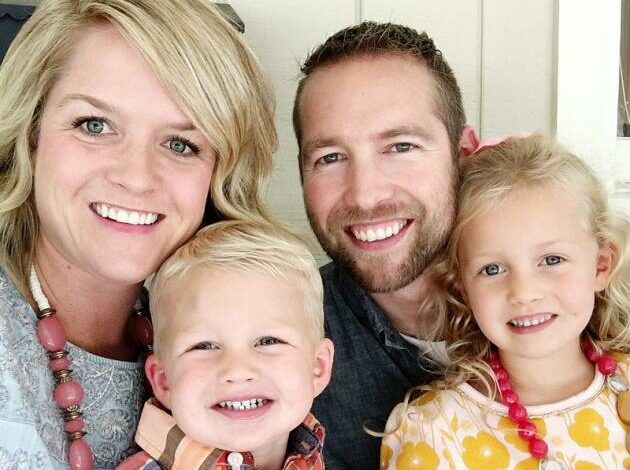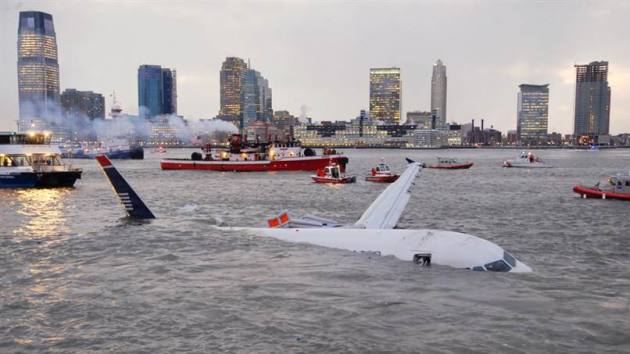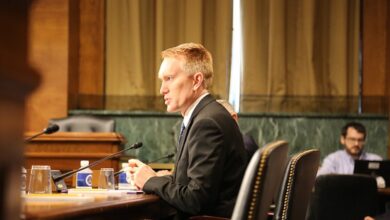“Miracle on the Hudson” survivor remembers day that changed her forever

It is hard to believe but it has been ten years since Captain Chesley “Sully” Sullenbergersuccessfully landed a malfunctioning U.S. Airways flight on the bitter cold waters of the Hudson River in January 2009.
One National Transportation Safety Board official described the emergency landing and subsequent rescue as “the most successful ditching in aviation history”.
The crash quickly became known as the “Miracle on the Hudson”, as all 155 passengers aboard the fateful flight survived by standing on the jumbo jet’s wings.
One of those passengers was a college student named Karin Rooney. Rooney, who was at a cross roads in her life at the time, had gone to New York a few days earlier to sort things out. Never did she think that she would be part of something so potentially tragic yet so profoundly life-changing.
I recently sat down with Rooney to discuss her new book Sink or Swim: Life after Crash Landing in the Hudson (written with Jessie Santala), how it completely transformed her relationship with God, and the advice she has for victims of trauma.
The inspiration for writing a book like this is obvious. However, some victims of plane crashes are hesitant to share their stories about it because the emotions are still fairly raw. Why did you choose to write this?
I think a lot of people wanted to know what it was like. It was, a media sensation. It was all over. There was a movie (Sully) made about it so people wanted to know what it was like to not just be the captain because he was all over the news but what was it like to be a passenger? What were you thinking? What were you feeling? And people wanted that story, but I think people also, whether they knew it or not people want to know what it’s like to survive that. Our plane crash didn’t have anybody pass away and I think that’s what’s so different. That’s why many plane crash survivors can’t talk about it because it was so much more traumatic. It was devastating for them. For ours, everybody survived. For me, I walked a very different journey away from that even though it turned out good.
I’ve got to believe the thought of standing out on a wing of a jumbo jet in the middle of the Hudson River in January will still get your adrenaline pumping. From your perspective, take me through the moments leading up to the crash and the emotions you felt standing out on that wing?
I didn’t know we were crashing even once we hit the birds and we felt the plane shake. I looked at my boyfriend Chris (now husband) and I didn’t know. I didn’t look out the window. I immediately began to pray and I really believe that the Lord was protecting me because I didn’t know that we were crashing in the water. It wasn’t until we finally landed that I fully realized what was going on. It wasn’t anything super violent. Nothing fell out of the overhead compartments. Nothing was ripping apart. It was in that moment that I saw the water coming in that I really thought we would die because we were obviously not sitting on the tarmac at the airport. My initial thought was we were going to drown in the plane. Everybody just started filing out. There were some people climbing over the seats, but everybody was filing out very quickly. Other people had very different experiences, so I’m only talking for myself. Chris and I were some of the last people out on that wing. And as we stood out there I remember thinking where in the world are we? All I saw was the city and New Jersey. We looked at each other and I said, ‘This is like the Titanic. This is out of control.’

What are your recollections of Capt. Sully Sullenberger, if any?
We don’t know all of the details that he went through afterwards. We don’t know everything that he had to do but in the moments of the crash. But yes, we definitely remember him. Sully is such a kind person. Every time we’ve interacted with him, he is so kind and thoughtful. His family’s beautiful. We’ve enjoyed every time we’ve had with him.
Did this plane crash affect your relationships with other people? Obviously, you have a direct relationship with your husband. Did it change how you interact with others based on having been through such a well-publicized ordeal?
My world kind of became a little smaller, especially when I was going through such trauma, or PTSD. I think people thought, ‘Well, it’s been a year. I mean, what’s going on? Why is Karin so down and out?’ It’s not that I didn’t continue those friendships, but I did have to make some adjustments to take care of myself, to heal, and to rest.
More importantly, how did the plane crash change your relationship with God?
I’ve always been a strong believer. I have never questioned whether God was faithful and took care of me. What I struggled with most and I talk a lot about in the book was how do I couple the real pain that I’m feeling with the hope that I profess and the peace that I know God gives me. He won’t give me more than I can handle but sometimes it seems like He does. I really had to lean in on my faith. I had to realize that God was compassionate toward me. He understood that I was struggling. I just want to offer hope to people that life isn’t always going to be a pretty box with a bow and God isn’t expecting that from you.
Even though no one died in this crash, did you experience any survivor’s guilt? If so, what did you do to combat this?
Well, not particular to our crash but it was a few months after our plane went down, there was a Buffalo flight that had some problems and everybody passed away from that crash. For me, it was just a realization that we could very easily not be here, that what we went through was truly a miracle and it doesn’t happen for everybody.
Have you ever thought why them and not us?
Yes. I’ve had to be very careful with that because of how much anxiety and fear I experienced. I have to be careful with the rabbit trail I take myself down on. I have a lot of things where I’m like, I don’t know. I don’t know why God let us live and they passed away. I don’t know. And there’s a part of me that thinks I don’t know if I’ll ever know or have an answer to that. I have to be okay with that. It is part of my faith that I don’t know why God has chosen for them, but I see even in my pain that God can bring good.
Since that fateful day in 2009, do you view life any differently today than you did prior to that?
I think anyone who has been through something traumatic like that could say, ‘Wow, life can be gone in a minute.’ You know that moment and that experience definitely is a foundational piece to who I am. It doesn’t define me, but yes, that is always in the forefront of my mind. Just how valuable life is, how good God is, how He is a part of every detail.
I have to believe that you are much more sympathetic to people who have experienced a traumatic experience than you were before the crash. How can you best support a loved one in a difficult place of trauma and hurt?
If someone doesn’t realize that it’s trauma, how do you lovingly guide them and say that something’s going on? We need to help them seek the people that have the professional skills to best assist them. Beyond that, I think a lot of it comes down to just saying, ‘I’m here for you. I love you. It’s okay.’ Sometimes no words are the best words and, and the most important thing is just being with someone. We struggle and I struggle even now even though I know it all. To sit well with people in the pain, the struggle and the journey of healing is continuous. And as you grow, your needs change. So just ask. What can I do for you today? How can I encourage you?
After people have read “Sink or Swim” what would you like readers to take away from the experience? What’s your greatest hope for the book?
I just want people to know that the experience they have or whatever they’re going through isn’t the end of their journey. They can and will find healing, but the process might not be what they hoped or thought.
Watch a Video on How All Passengers Survived the Miracle on the Hudson:
–Chris Carpenter






